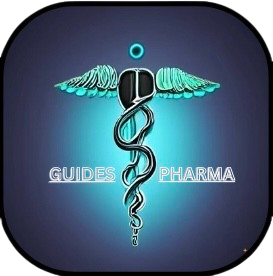Type 1 diabetes, an autoimmune disease characterized by the destruction of insulin-producing beta cells in the pancreas, has long been a challenge for medical researchers and patients alike. Despite numerous advances in diabetes care, no treatment has been able to address the root cause of the disease: the autoimmune response itself. This is where Diamyd Medical, a pioneering pharmaceutical company, has stepped in. Their Phase III Fast Track study on Diamyd, a vaccine aimed at halting autoimmune diabetes, offers a promising new approach to treating Type 1 diabetes at its core.
The Science Behind Diamyd: A Revolutionary Diabetes Vaccine
Diamyd Medical’s vaccine, known simply as Diamyd, is a GAD-alum based therapy targeting the autoimmune process that leads to Type 1 diabetes. The vaccine works by desensitizing the immune system to glutamic acid decarboxylase (GAD65), a protein that is mistakenly attacked by the body’s immune system in patients with Type 1 diabetes. By inducing tolerance to GAD65, the vaccine aims to preserve the function of the pancreas’ beta cells, thereby halting the progression of the disease.
This groundbreaking treatment offers a potential disease-modifying therapy, which means it targets the disease mechanism rather than merely addressing symptoms such as blood sugar levels. If successful, this treatment could mark a paradigm shift in the management of Type 1 diabetes, transforming patient outcomes on a global scale.
Phase III Fast Track Designation: A Leap Forward in Diabetes Research
The Phase III Fast Track designation awarded by the U.S. Food and Drug Administration (FDA) is a significant milestone for Diamyd Medical. Fast Track status is granted to treatments that address serious conditions and have the potential to fill unmet medical needs, allowing for an expedited review process.
The Phase III study, known as DIAGNODE-3, is currently underway and aims to assess the efficacy and safety of the Diamyd vaccine in a larger cohort of patients. With the Fast Track designation, the development timeline for this potentially transformative treatment could be accelerated, bringing it closer to the millions of people affected by Type 1 diabetes.
The trial is particularly focused on patients newly diagnosed with Type 1 diabetes who still have some residual beta cell function. These individuals stand to benefit the most from the treatment, as the vaccine could potentially preserve their insulin production and prevent further immune system attacks.
Clinical Evidence and Early Success
The journey to Phase III clinical trials has been supported by encouraging data from earlier studies. In previous Phase II trials, the Diamyd vaccine demonstrated an ability to preserve beta cell function in patients recently diagnosed with Type 1 diabetes. Patients who received the vaccine showed a slower decline in their ability to produce insulin compared to those who received a placebo, offering a glimmer of hope for a future in which diabetes progression can be halted, or even reversed.
In addition to its efficacy, the Diamyd vaccine has shown a favorable safety profile. Most side effects reported in clinical trials were mild and transient, with few serious adverse events. This is a crucial factor, as any new treatment for a chronic condition like diabetes must be both effective and safe for long-term use.
A Future Without Insulin Dependence?
One of the most exciting aspects of Diamyd’s vaccine is its potential to reduce or eliminate the need for insulin therapy. Insulin dependence is a hallmark of Type 1 diabetes, and managing it can be challenging, costly, and time-consuming for patients. By preserving beta cell function and slowing disease progression, the Diamyd vaccine could dramatically reduce the need for exogenous insulin, improving the quality of life for individuals living with the condition.
Moreover, preserving even a small amount of insulin production has been shown to reduce complications associated with Type 1 diabetes. Patients with some residual beta cell function often experience fewer episodes of hypoglycemia (dangerously low blood sugar) and have a reduced risk of long-term complications like neuropathy, retinopathy, and kidney disease.
A New Hope for Autoimmune Disease Treatment
While Diamyd Medical’s current focus is on Type 1 diabetes, the success of the Diamyd vaccine could have far-reaching implications for other autoimmune diseases. The principle of antigen-specific immunotherapy—retraining the immune system to tolerate specific proteins—could be applied to other conditions in which the body mistakenly attacks its own tissues. Diseases like multiple sclerosis, rheumatoid arthritis, and lupus could potentially be treated using a similar approach, offering new hope to millions of patients worldwide.
A Promising Path Forward
The development of the Diamyd vaccine represents a major step forward in the field of diabetes research. With Phase III clinical trials underway and Fast Track designation from the FDA, the possibility of a disease-modifying therapy for Type 1 diabetes is closer than ever. If successful, the Diamyd vaccine could not only transform the lives of individuals living with Type 1 diabetes but also pave the way for new treatments for a wide range of autoimmune diseases.
Conclusion: A New Era for Type 1 Diabetes Treatment
The development of Diamyd Medical’s vaccine signifies a potential turning point in the treatment of Type 1 diabetes. By addressing the underlying autoimmune cause of the disease, Diamyd offers hope for preserving pancreatic function, reducing or eliminating the need for insulin, and improving long-term outcomes for patients.
The ongoing Phase III Fast Track study will be pivotal in determining whether this innovative treatment can deliver on its promise. If the results are positive, Diamyd could represent a major breakthrough in diabetes care and open new avenues for the treatment of other autoimmune diseases. The world is watching closely, as this vaccine could redefine what it means to live with Type 1 diabetes.

